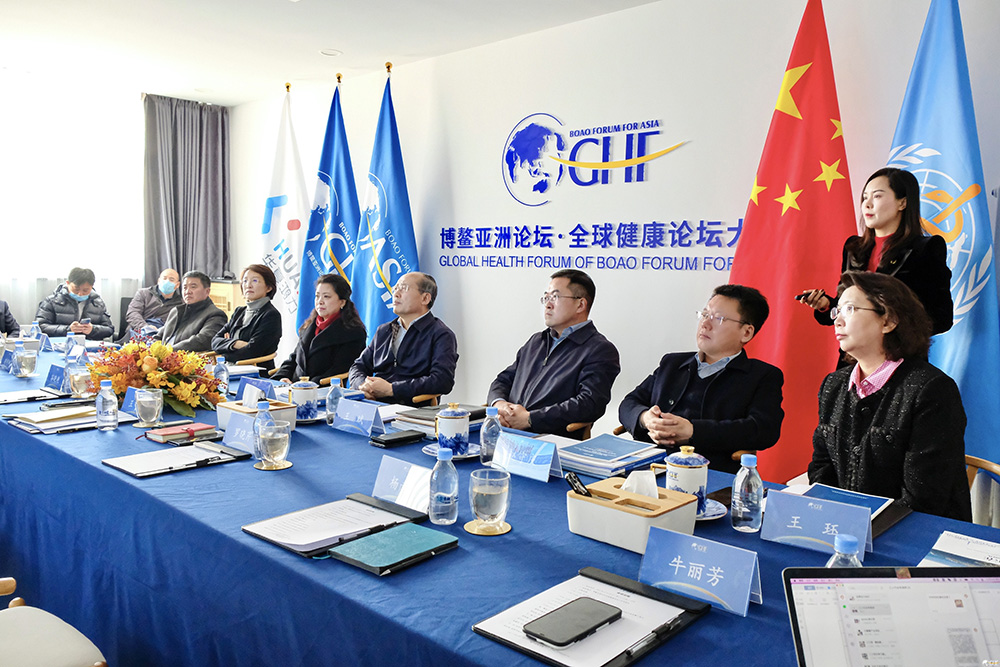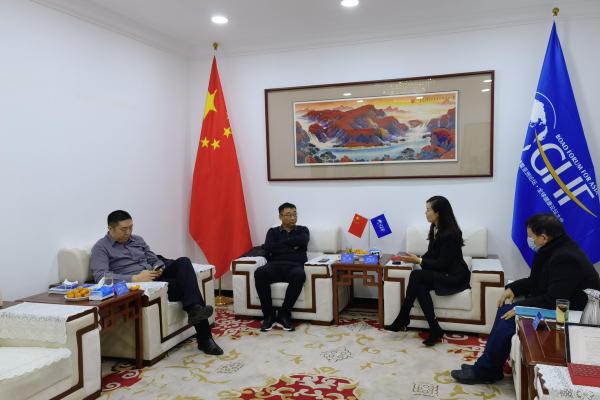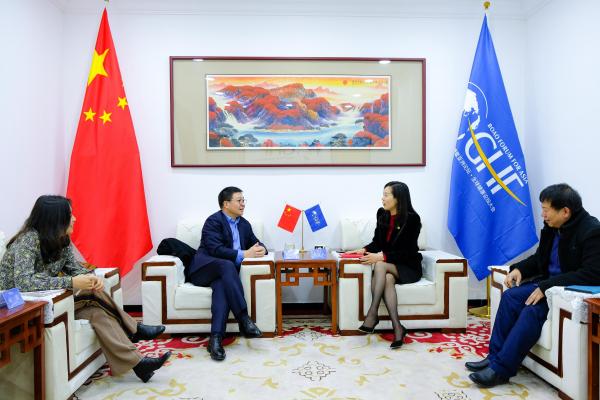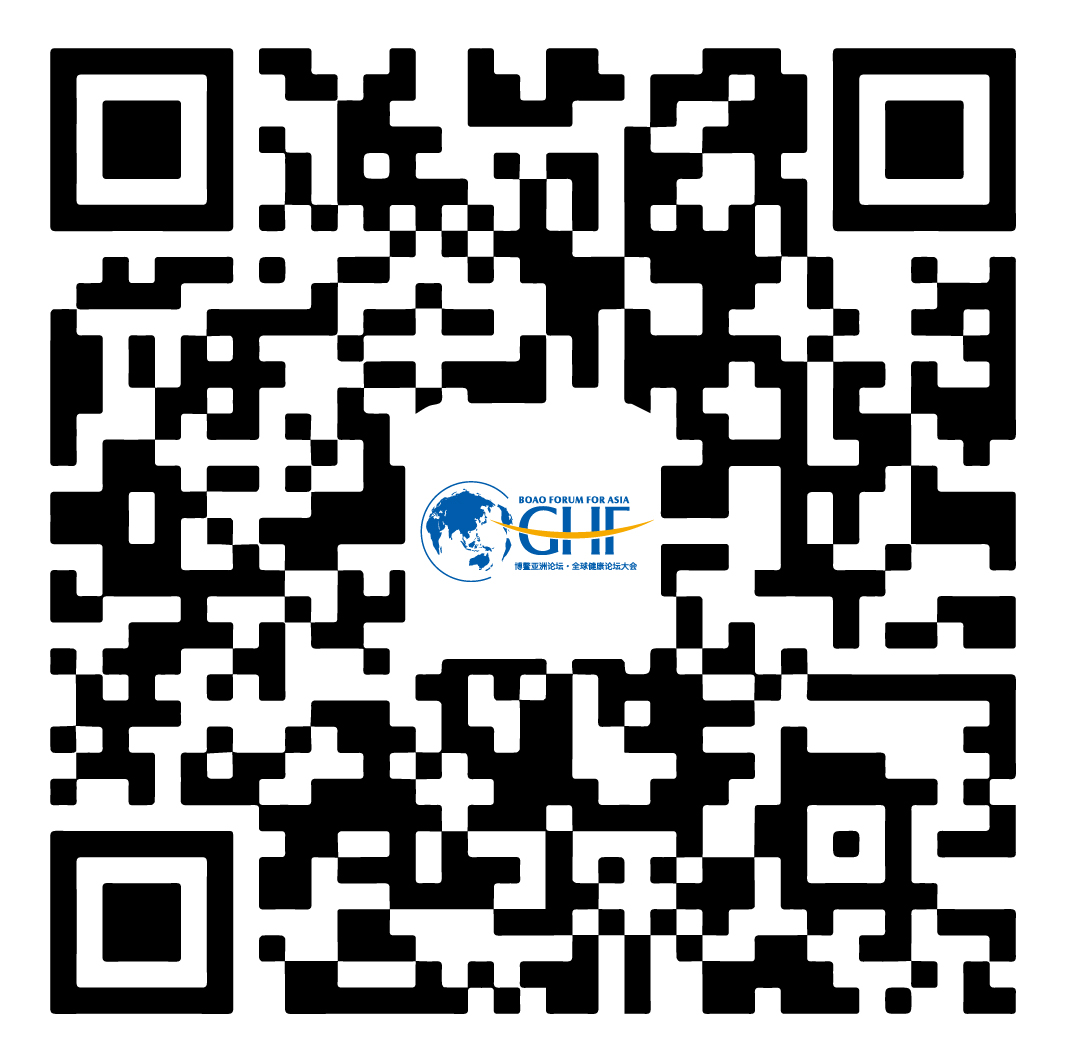On July 29, Boao Forum for Asia (BFA) launched the “Report on the Global Use of Covid-19 Vaccines” in Beijing. Li Baodong, Secretary General of BFA, introduced the report at the launch. The report presents a full picture of the application of Covid-19 vaccine in a global perspective in terms of its research and development, production, application, effectiveness and prospect.
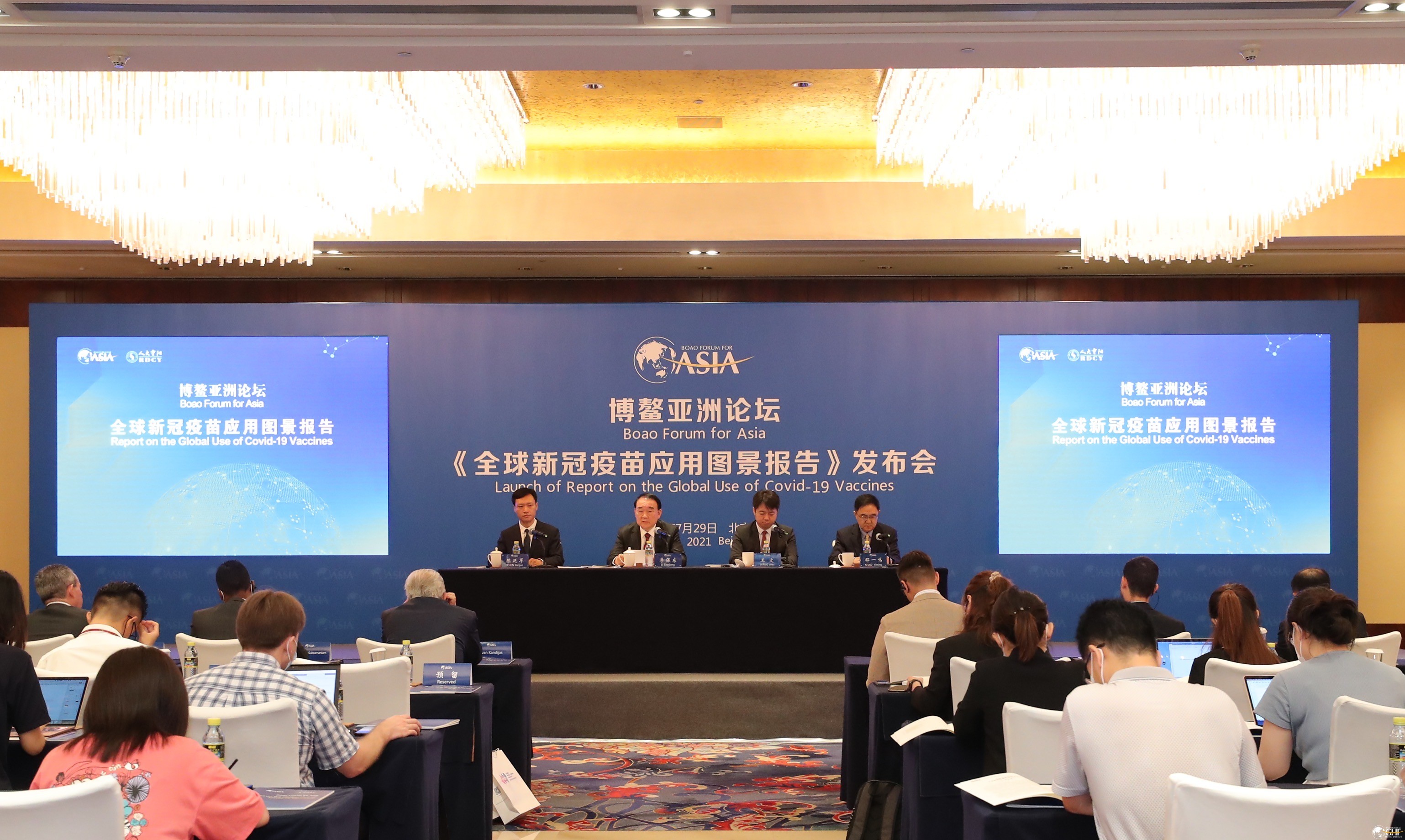
Secretary-General Li Baodong said that the COVID-19 vaccine has several distinctive features in terms of research, development and application. It is one of the fastest developed infectious disease vaccines in human history. Although it was developed at an extraordinary speed, the safety of the vaccine was also effectively guaranteed. The performance of emerging economies, such as China, in the urgent development of vaccines is remarkable. This has only been done in the past by a few developed countries. In this global race for the development of Covid-19 vaccines, China and Russia are in the first place, largely in sync with developed countries in the US and Europe, and India has also played an important role in the processing and production of vaccines.
The report concludes that it is no coincidence that China is at the forefront of the development of COVID-19 vaccines. China has attached great importance to health care and vaccine research and development for many years. Under the leadership of Chinese President Xi Jinping, China has developed a "Healthy China" strategy and action program, significantly increased investment in the health sector, and invested heavily in science and technology, providing China with a strong technological and human resource base for vaccine development. In the response to the pandemic, the Chinese government has put "people-oriented" and "life first" in the first place, and this concept is also reflected in the development and application of vaccines.
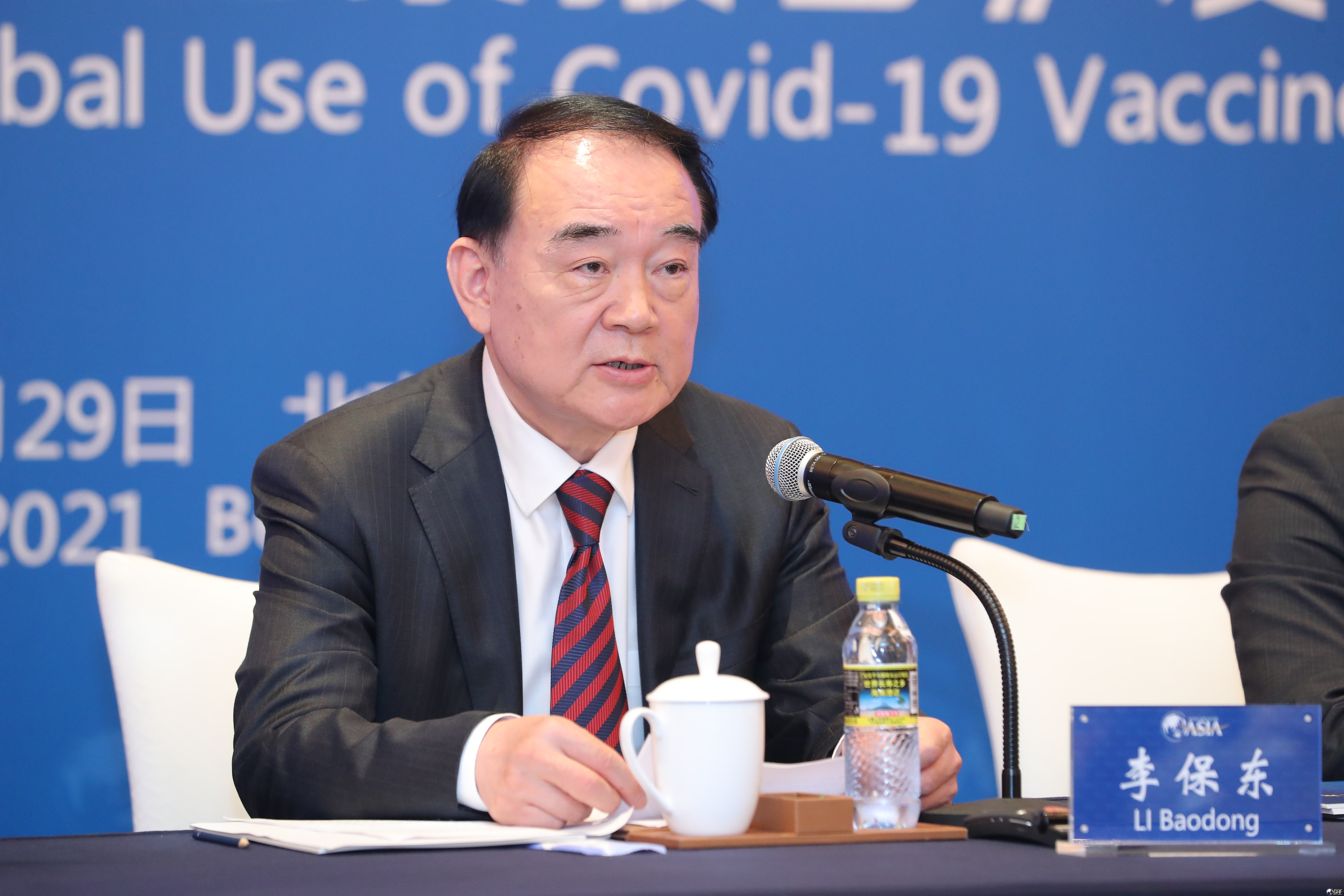
Li Baodong, Secretary General of BFA
Secretary General Li Baodong said that the vaccination situation varies greatly from country to country. The vaccination situation is also very different for countries that have the capacity to develop and produce vaccines. For a country, vaccination rates do not naturally increase all the time, even when sufficient vaccines are available. China leads the world in vaccinations and was the first country in the world to declare free vaccinations for all people, with over 1.5 billion doses administered. The number of vaccinations in China exceeded 20 million doses in a single day. Behind such a large scale of vaccination is a strong production capacity, distribution capacity and social mobilization capacity. Increasing vaccination rates is also a systemic project that requires a combination of logistics, promotion, mobilization and even incentives to better integrate national policies and individual wishes. Not only do we need to organize manpower to implement, but we also need to follow up and implement every step of the process. In this regard, China also provides a good example.
The report points out that there is a serious imbalance and fragmentation in the international distribution of vaccines. Among the countries where the proportion of fully vaccinated population exceeds 30%, European and American countries account for the majority. In contrast, vaccination rates in less developed countries and regions are generally low. The African continent has vaccinated less than 2% of the world. Only 0.9% of the population in low-income countries has received at least one dose of the COVID-19 vaccine.
The report indicates that how to improve the accessibility and affordability of vaccines in developing countries is the most prominent issue facing the global fight against the pandemic at present. Faced with this problem, China was the first country to express its willingness to provide assistance to developing countries. In May 2020, just as the global Covid-19 pandemic began to rise, President Xi Jinping proposed at the opening ceremony of the 73rd World Health Assembly Video Conference that China will make its Covid-19 vaccines a global public goods once the R&D is completed and put into use. President Xi is the first leader to propose building " a Community of Common Health for Mankind" and making vaccines a global public goods. Some other developed countries, as well as international organizations such as the G20, G7, and the EU have also proposed vaccine assistance programs and intentions for developing countries.
In terms of implementation, the statements made by many countries and organizations have not been fully translated into reality. Data shows that some related countries have made the thunder roars loudly, but little rain falls in actions of providing vaccines externally. There is a lack of both timeline and a roadmap in implementation. The United States has a large domestic stockpile of vaccines, and there is a large gap between its actual actions and its ability to provide vaccines externally. The EU exports vaccines mainly to middle- and high-income countries.
The report found that China has made the largest contribution to providing vaccines to developing countries, with more foreign aid and exports of vaccines than any other country combined. China has followed through its commitments and claims with practical actions. To date, China has donated more than 26 million doses of vaccines to foreign countries and provided more than 500 million doses of vaccines and stock solutions to more than 100 countries and international organizations, equivalent to one-sixth of the total global production of Covid-19 vaccines. China's vaccine exports are 227% of Europe's vaccine exports and 84 times greater than those of the United States. In addition to the export of finished vaccines, China is helping other developing countries establish local production lines for vaccines, some of which are already in production. China also actively supports the exemption of intellectual property rights of Covid-19 vaccines for developing countries.
The report recommends that the world's major vaccine producing countries, as well as major international cooperation mechanisms such as the G20, should hold special intergovernmental meetings on vaccine supply to aggregate and sort out the global demand for vaccines, especially in developing countries, and establish a combined bilateral and multilateral global vaccine distribution program on a fair and reasonable basis. Countries with relatively advanced medical technology and relatively advanced vaccination rates in their countries should take responsibility and do their best to assist the international community, especially developing countries.
On the current concern about the effectiveness of the vaccine against the mutated “Delta virus”, the report concludes that the mutation of the virus poses a challenge to the effectiveness of the vaccine, but that vaccination remains an effective way to contain the pandemic. A full assessment of how much the new mutated viruses will weaken the effectiveness of various vaccines has yet to be made by professional institutions.
The report notes that, globally, how long the Covid-19 outbreak will continue depends largely on whether the development and distribution of vaccines can keep pace with the spread and mutation of the virus and whether comprehensive prevention and control measures are in place. According to WHO, the world needs 11 billion doses of vaccine to achieve the goal of getting 70 percent of the world's population vaccinated. The total global production capacity of Covid-19 vaccine is expected to basically reach this amount by the end of 2021, but the question is whether or not the vaccines can be properly distributed globally. As mutated viruses weaken the protection of the vaccines, it is also necessary to improve existing vaccines to enhance their effectiveness.
Strengthening mutual acceptance of vaccines internationally is a priority for current international cooperation. The report recommends that countries should treat vaccines certified by the WHO equally. Key multilateral mechanisms, such as the United Nations, should also play a greater role in coordinating the international community to reach a fair and effective formula for universal access based on existing WHO schemes to end the inconvenience of international travel restrictions for countries as soon as possible.
The report argues that the application of vaccines also reflects some of the deep-seated problems that already existed in international relations. The issue of vaccines, which had never been a central topic in international relations until the outbreak of the Covid-19 pandemic, has become a hot topic. There are also new terms, such as "vaccine diplomacy". The politicization and ideologization of medical issues is worrisome. "Vaccine nationalism" has seriously affected the equitable distribution of vaccines internationally and international cooperation in the fight against the disease. The report recommends that the international community should unite against the politicization of the vaccine issue and continue to make the Covid-19 vaccine a "global public goods", and to avoid "vaccine nationalism" that hinders the international fight against the pandemic.
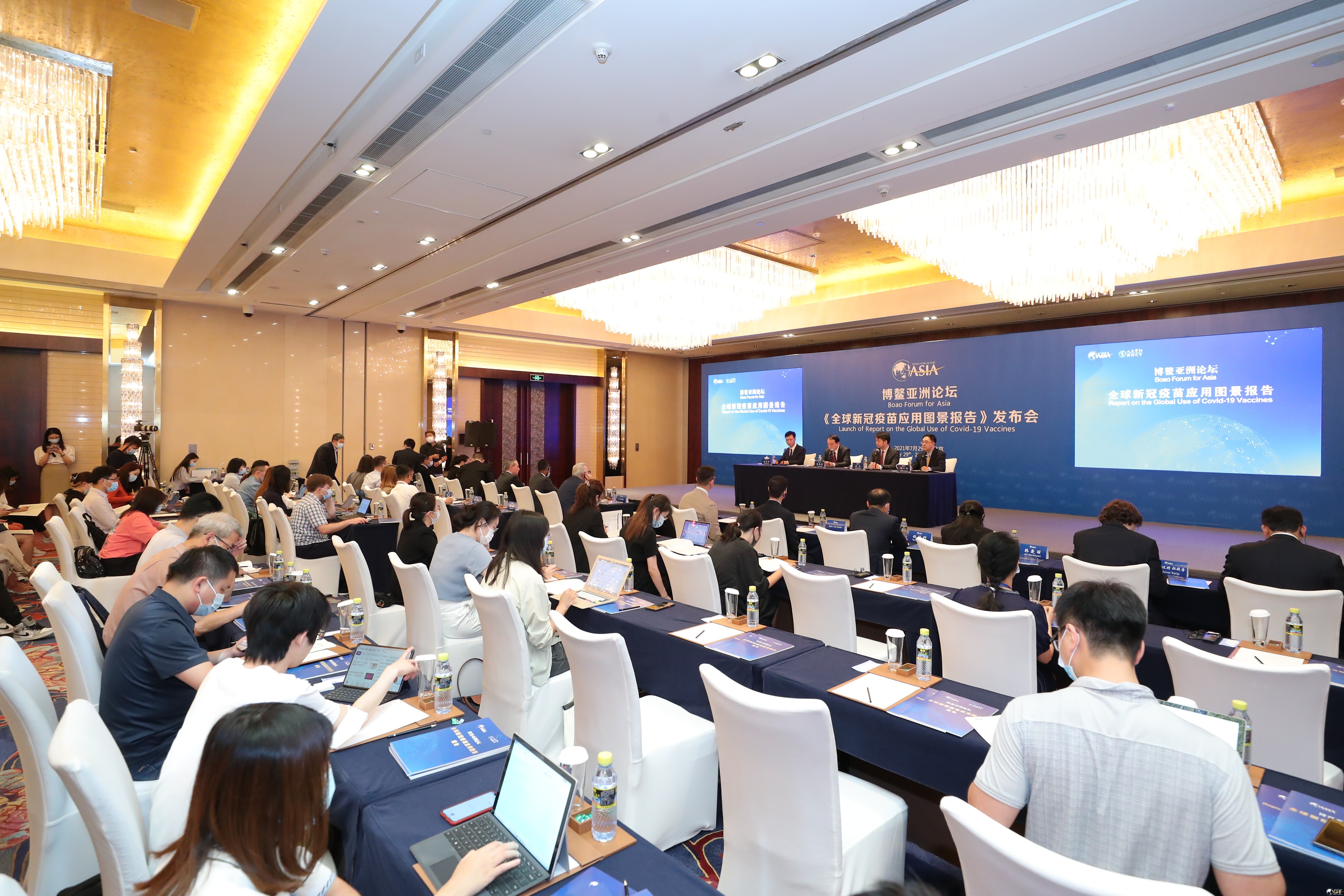
This is the second time that the Boao Forum for Asia (BFA) has released a special report on the Covid-19. Last June, in the early days of the global pandemic, Boao Forum for Asia released a special study on "The Pandemic and the Changing World," which put forward ten observations and thoughts on how the pandemic would affect the world. Given that the application of vaccines is the most prominent issue in the current response to the pandemic, BFA focuses this year's thematic report on the pandemic on the issue of vaccines.
The report was completed by Boao Forum for Asia Academy in cooperation with Chongyang Institute for Financial Studies of Renmin University of China. Wang Wen, Executive Director of the Chongyang Institute, introduced the details of the report at the launch event. Shao Yiming, chief expert of the Chinese Center for Disease Control and Prevention, diplomatic envoys of relevant countries to China and Chinese and international media attended the report launch.

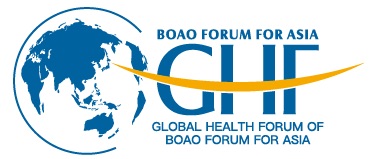

 What’s on
What’s on
 Partner application
Partner application Download
Download Hot News
Hot News
